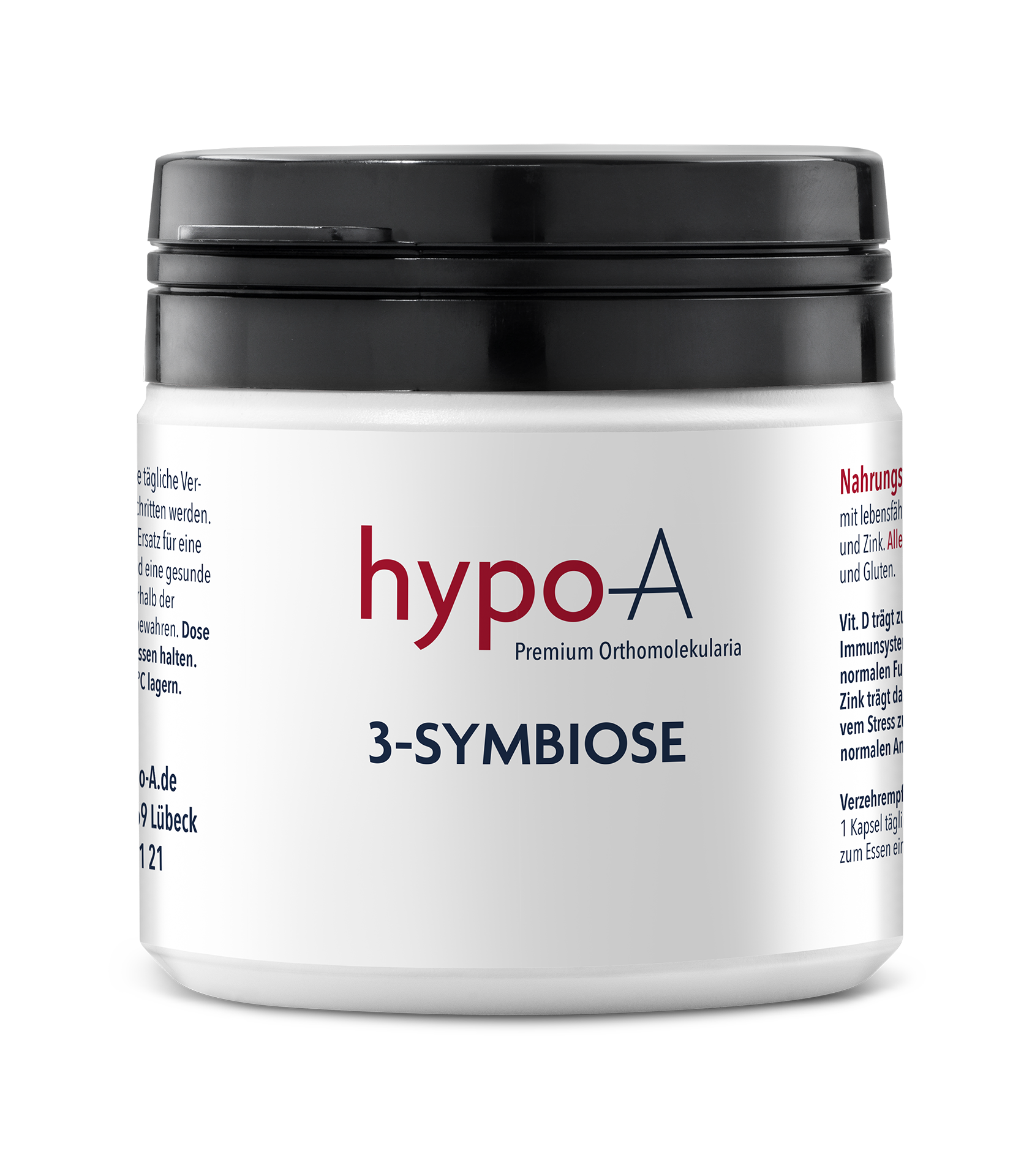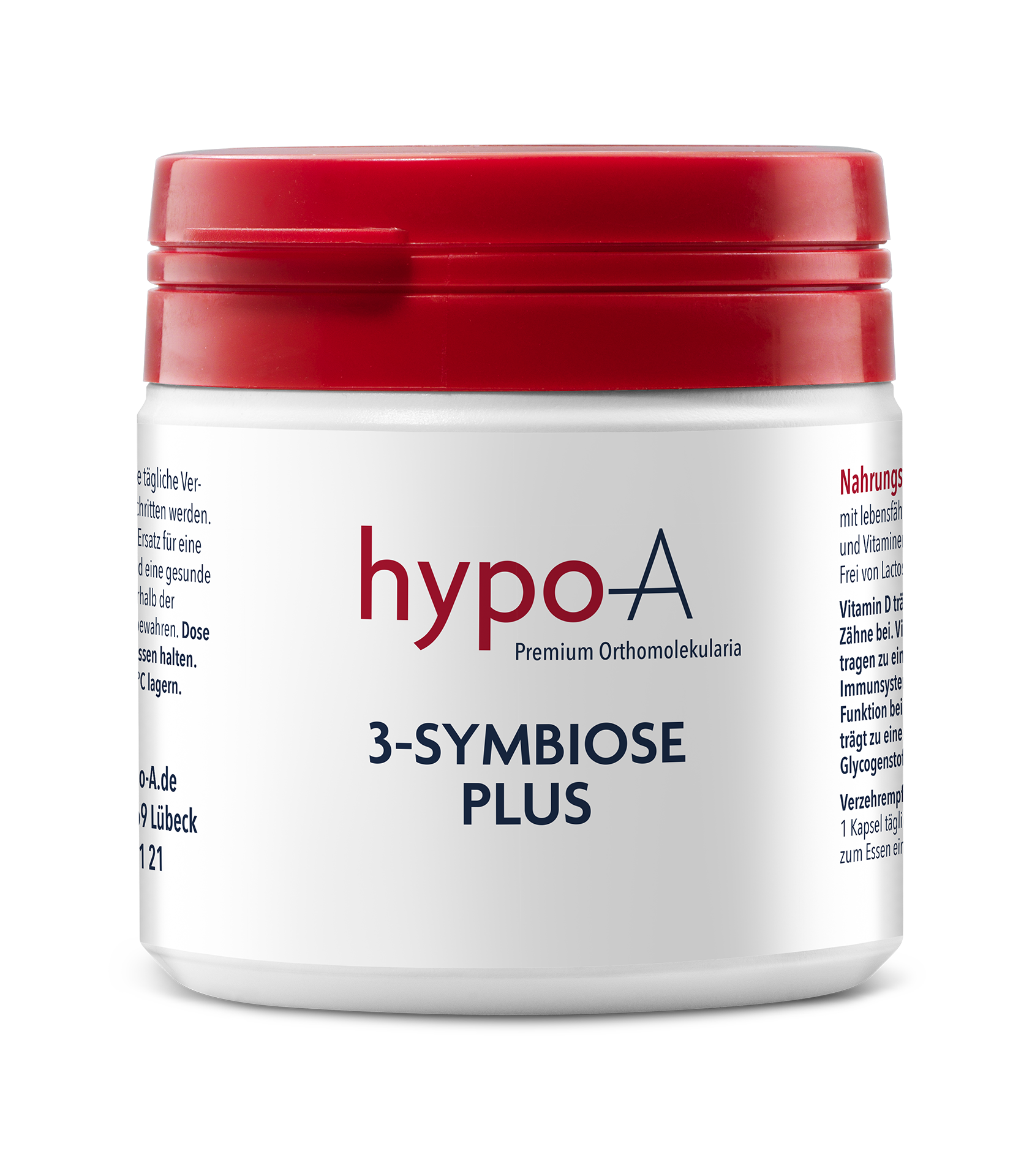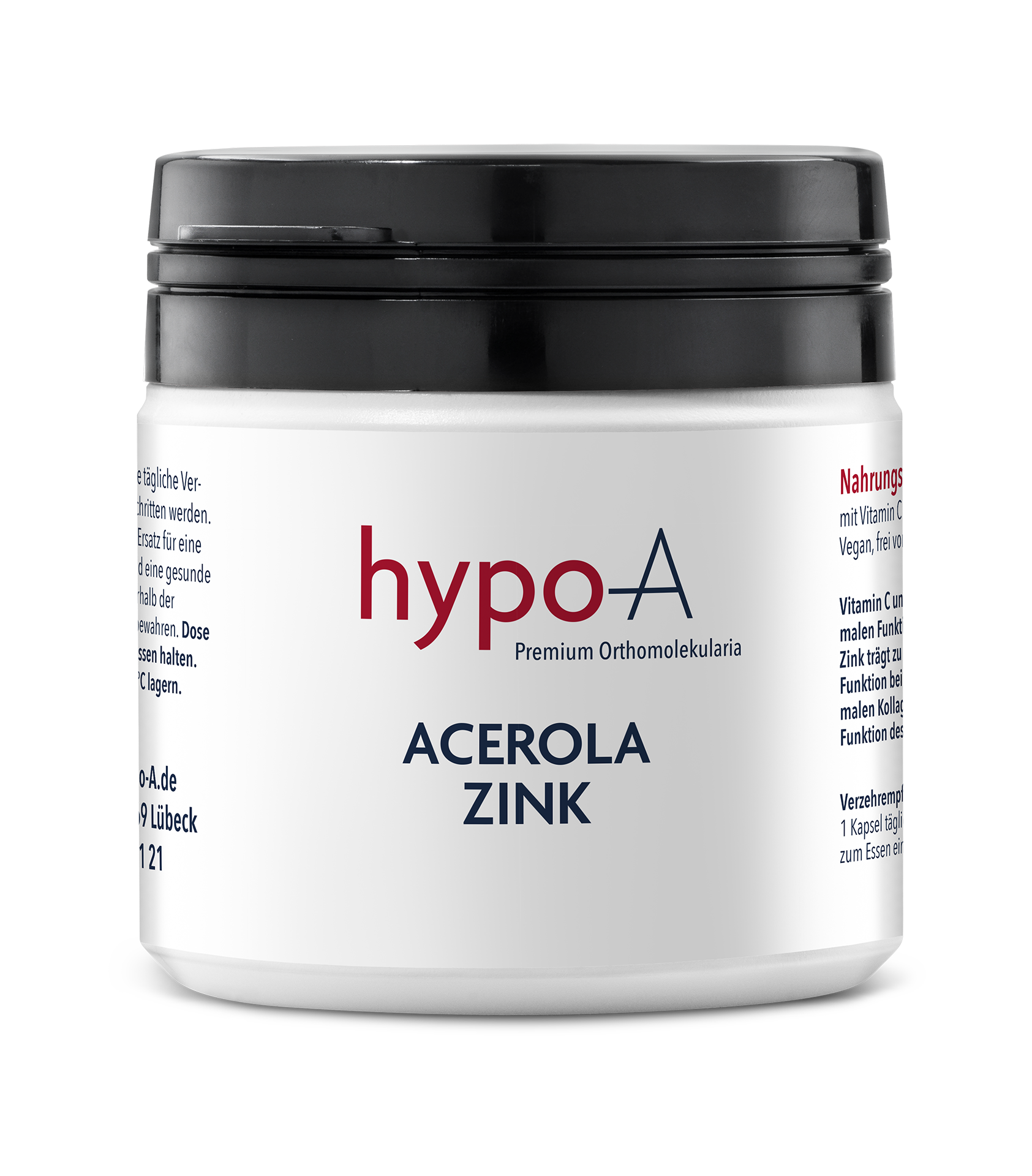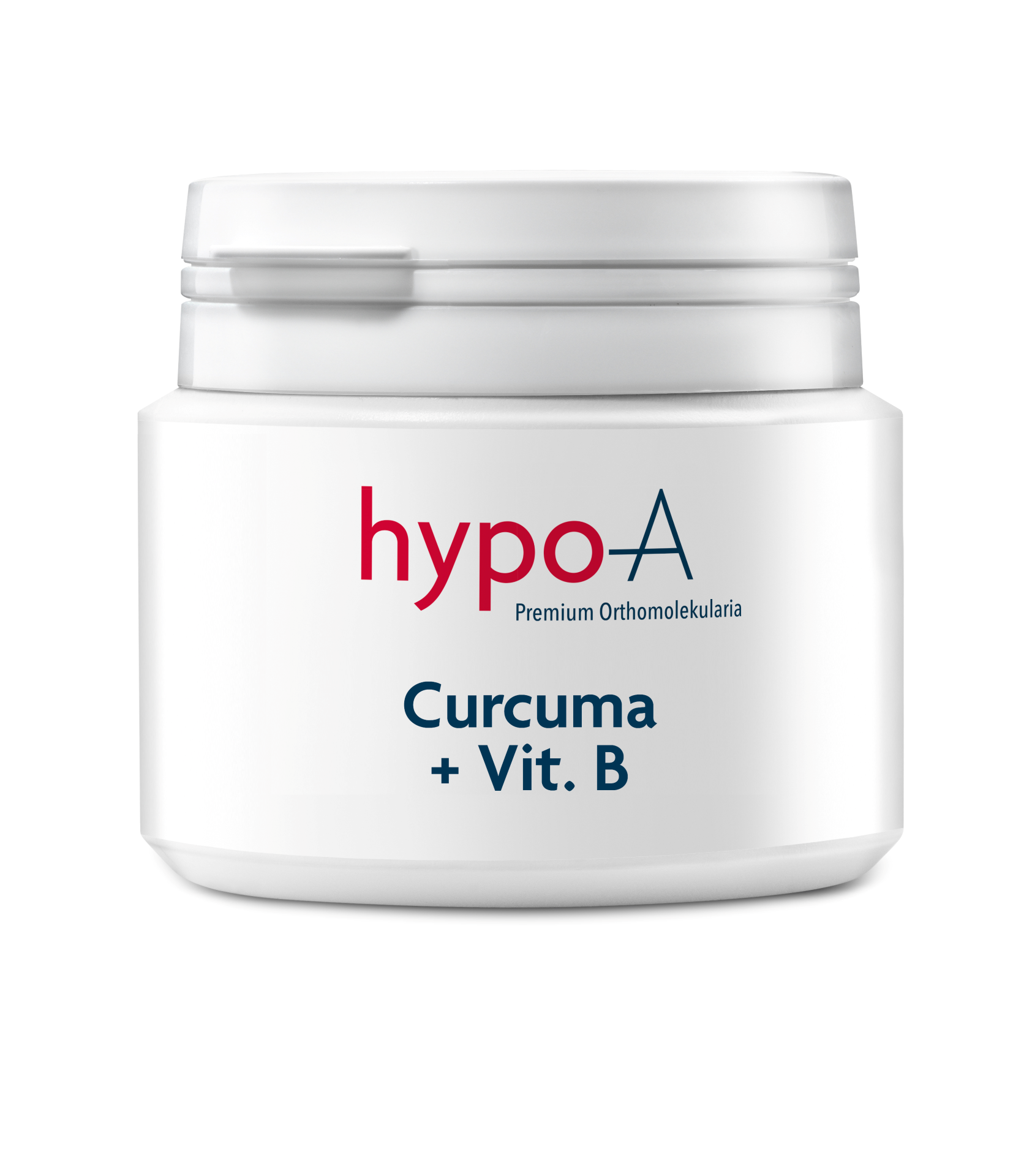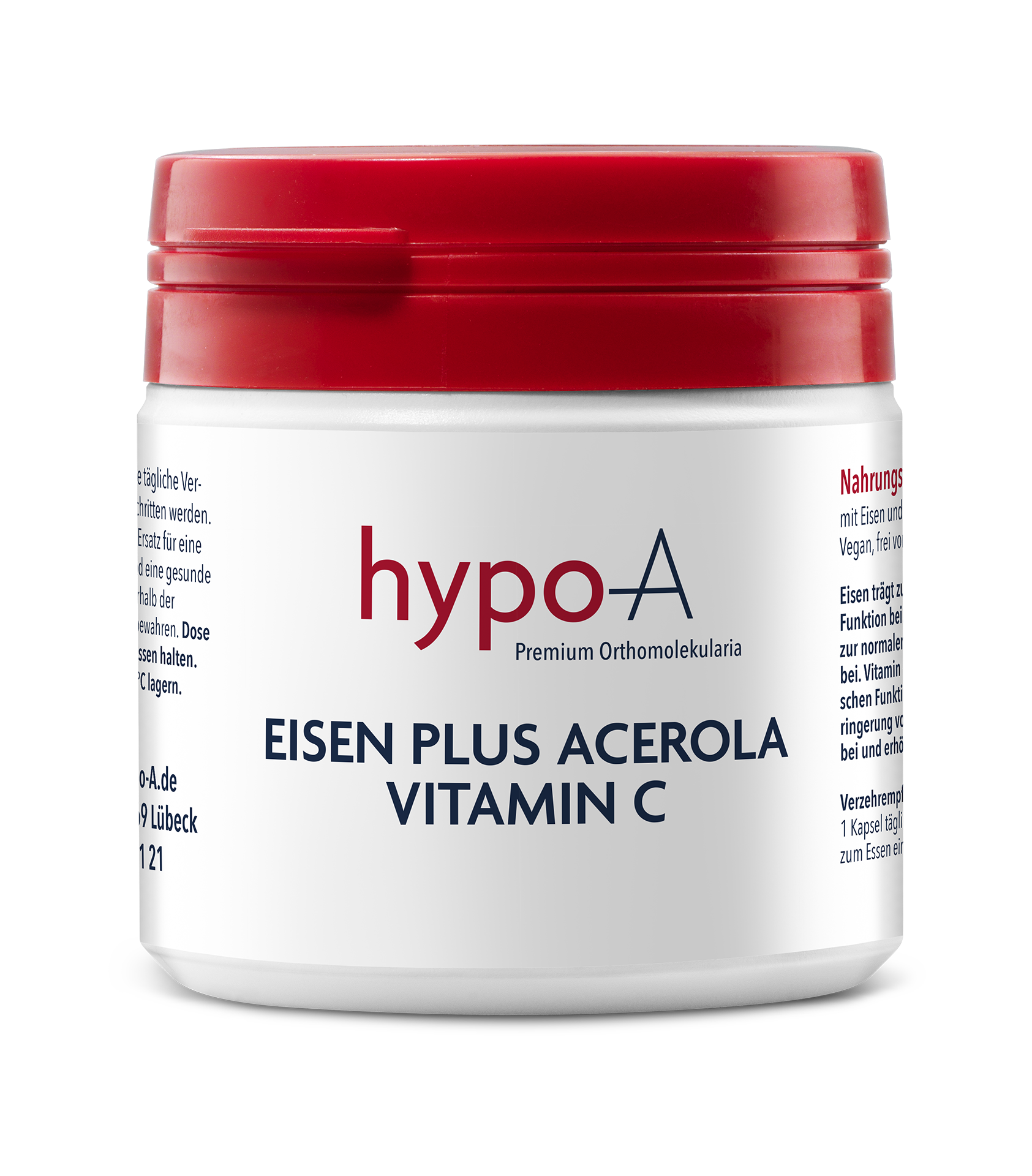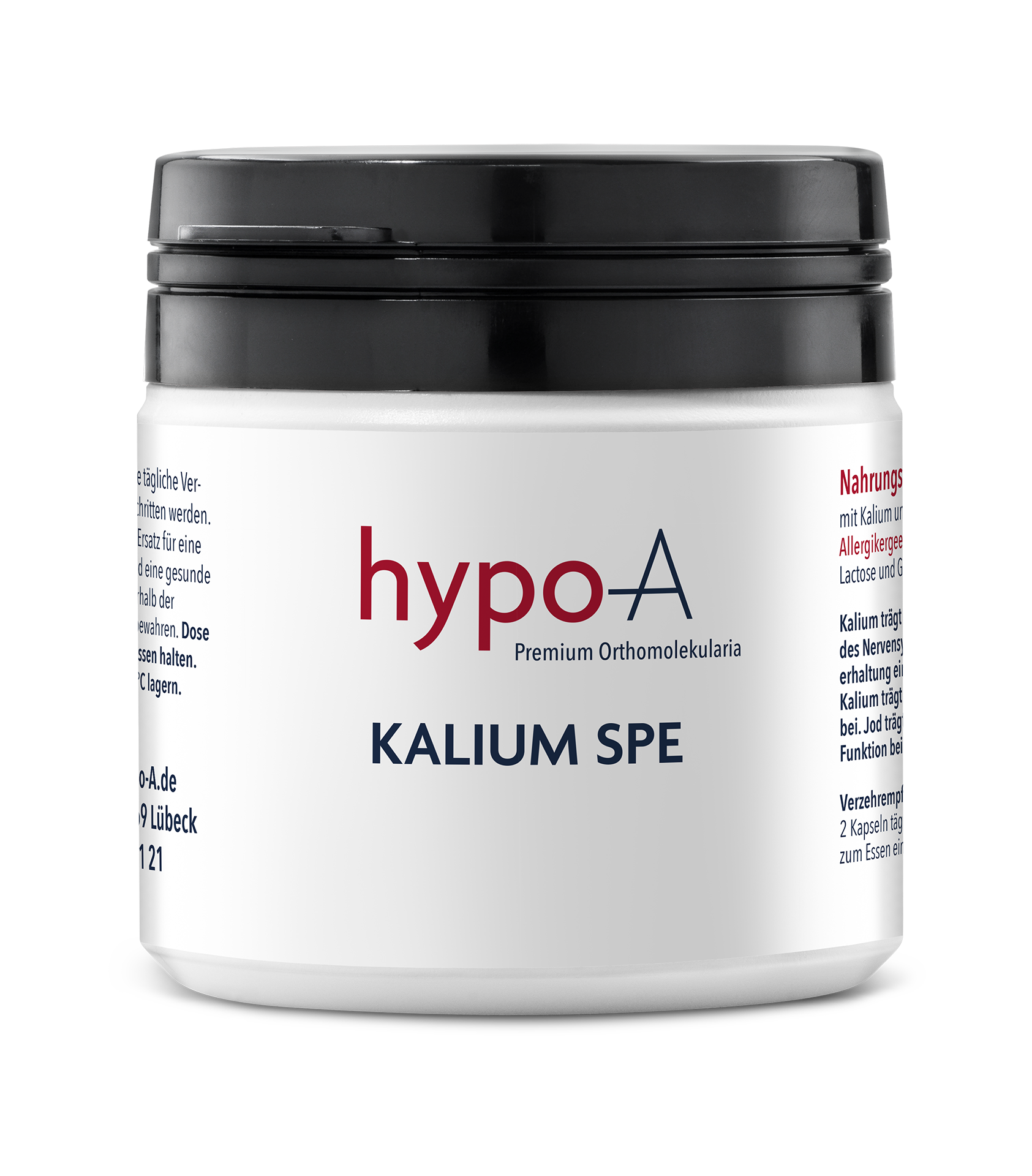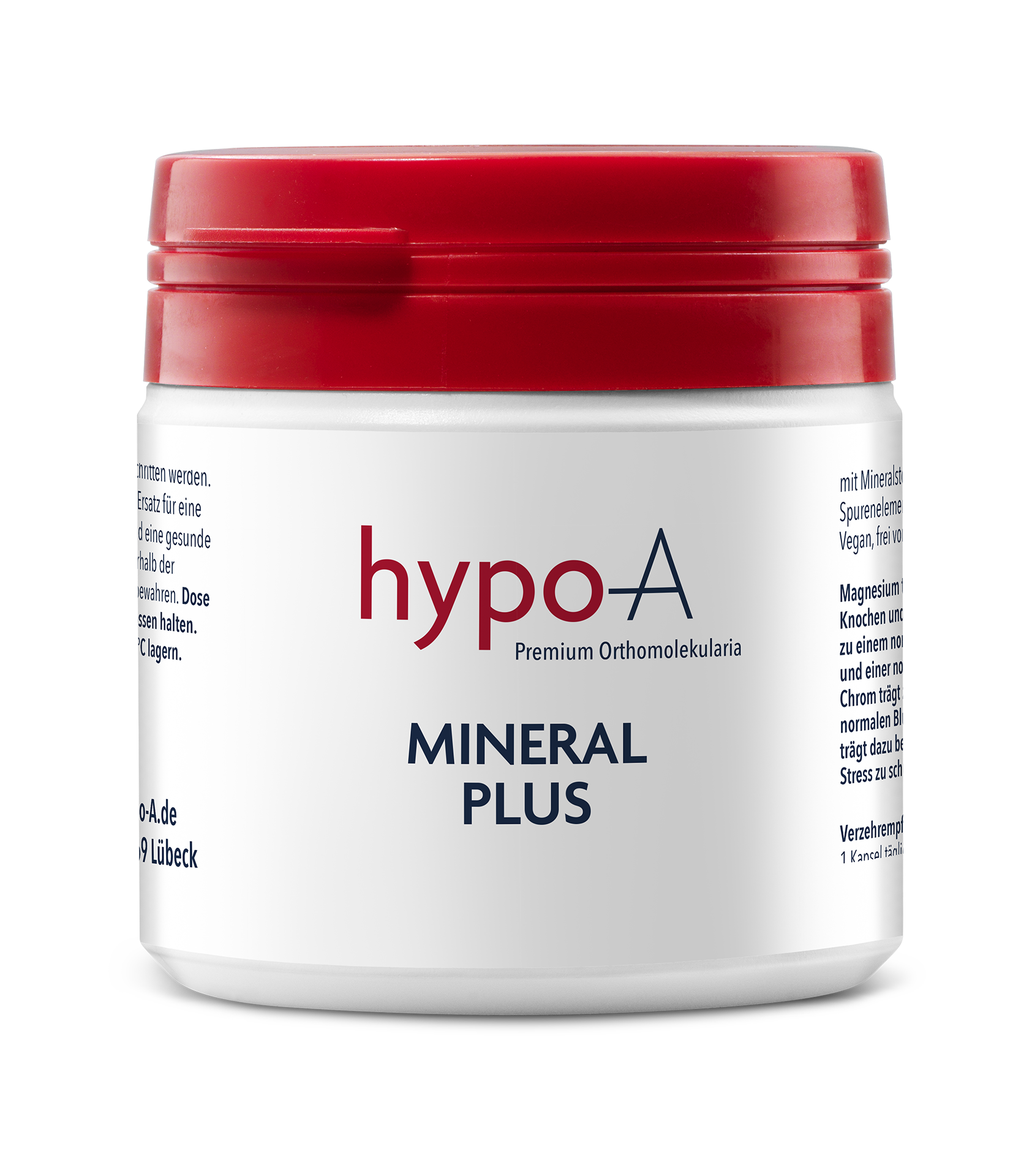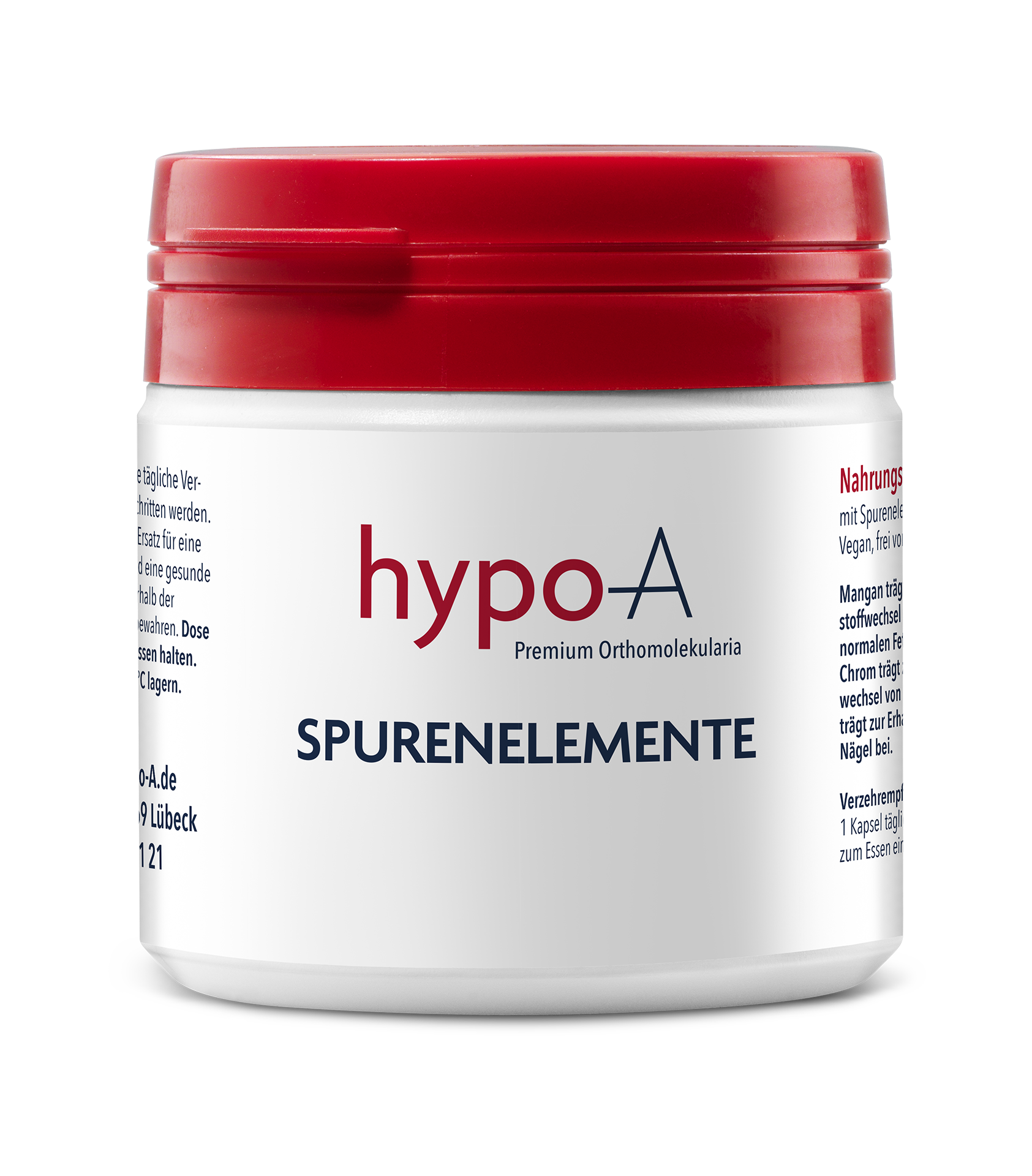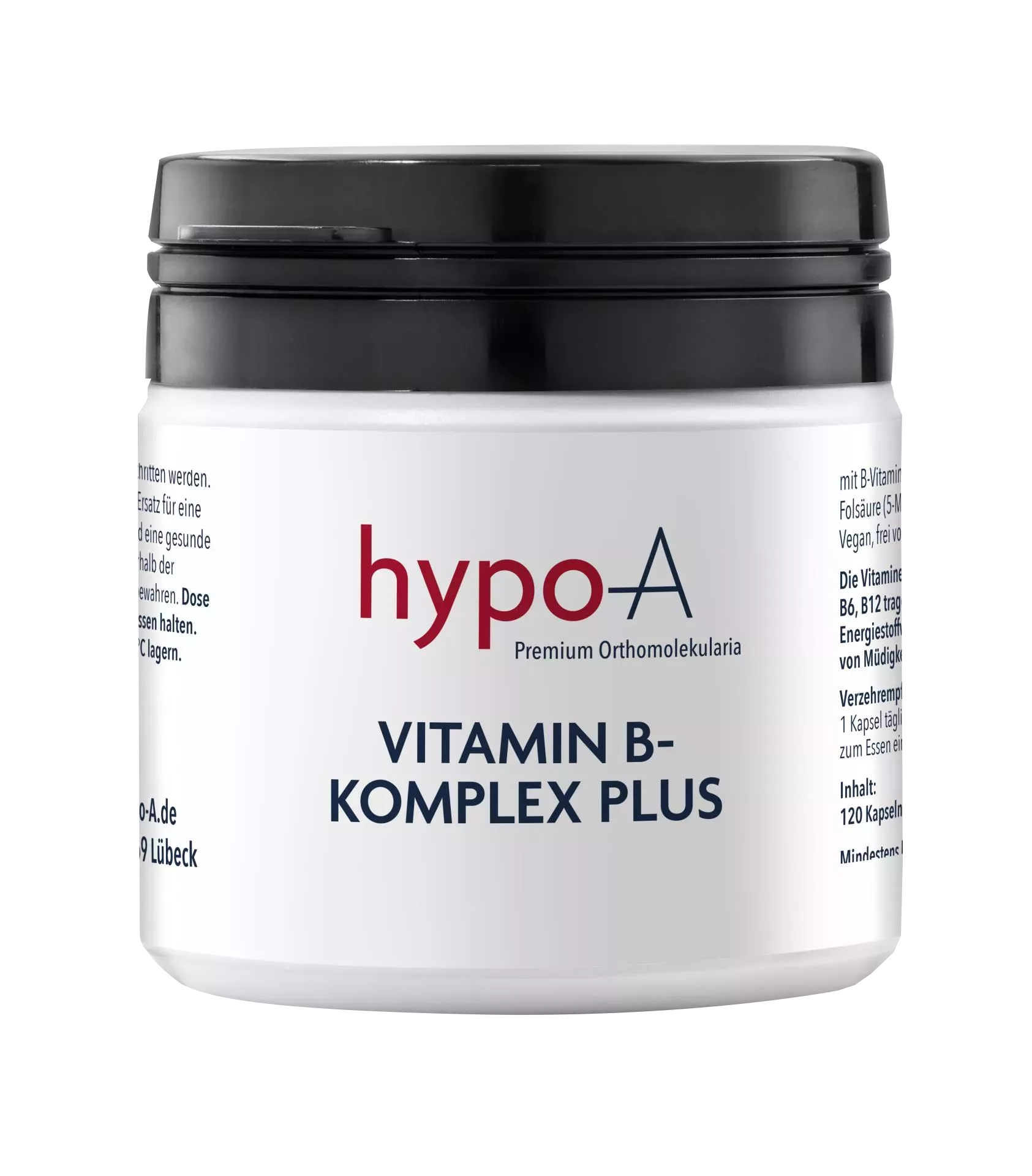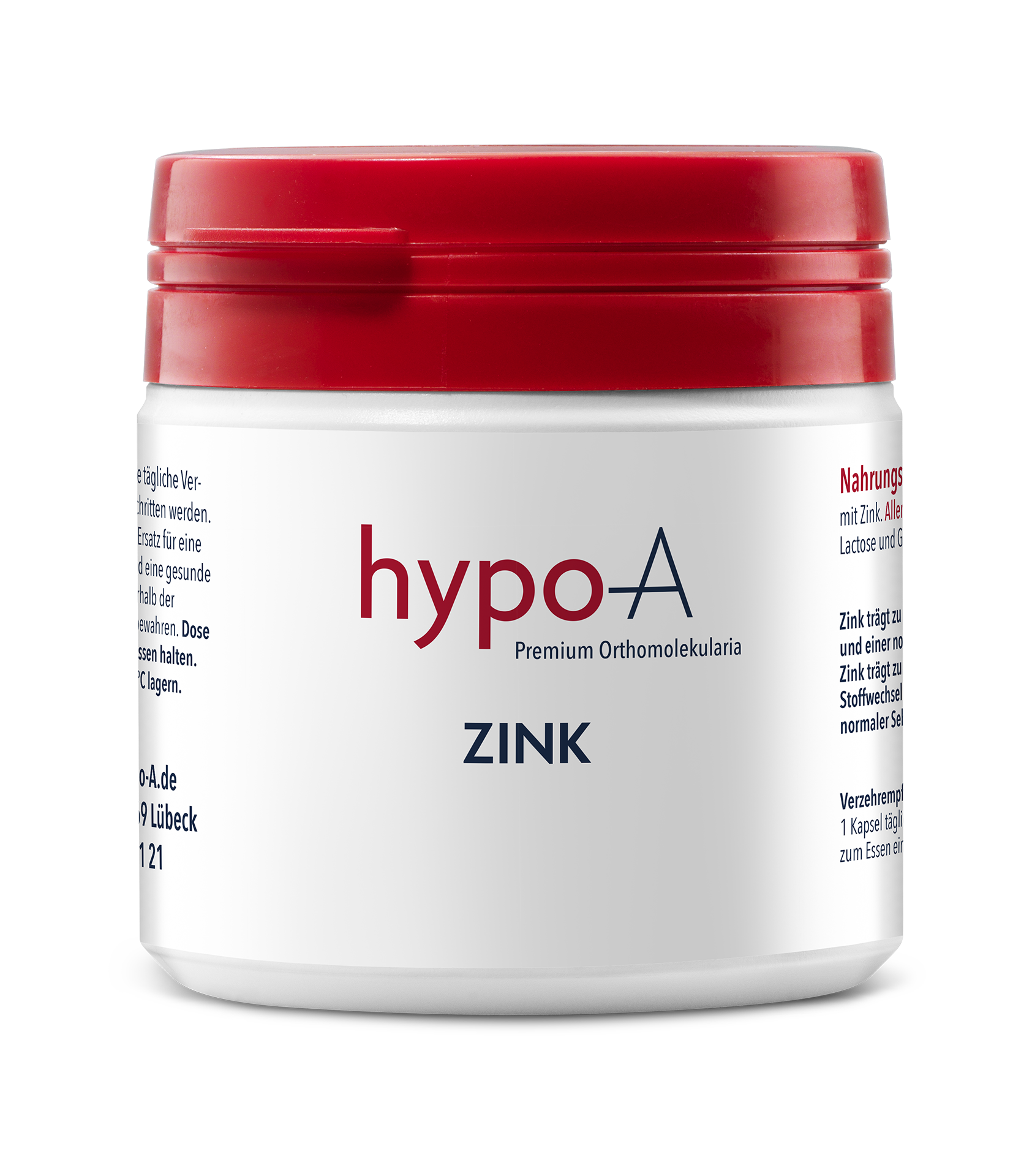
What do magnesium, calcium and potassium have in common? They belong to the family of minerals and are scientifically known as bulk elements. Minerals are vital inorganic nutrients that our body cannot produce itself, but which are contained in many fresh foods. Alongside trace elements and vitamins, minerals are among the most important micronutrients and are real all-rounders for our well-being. With them, our body forms a strong team for health, performance and vitality.

Would you like to provide your body with micronutrients in addition to a healthy diet? Then you will find what you are looking for here. Benefit from high-purity products that are optimally harmonised with each other. Gain a comprehensive insight into the product world of premium micronutrients.

Ever since we realised how crucial a successful fatty acid balance is for our body, polyunsaturated omega fatty acids in particular have moved into the limelight of a health-conscious diet. Whether marine fish oil or high-quality vegetable oils such as linseed oil, evening primrose oil, borage oil and black cumin oil, oils energise us, carefully coat our cells and transport fat-soluble vitamins into our bodies. The biggest heroes among them are pure, high-quality omega-3 fatty acids - a real boon for the eyes, heart and brain. Cold-pressed, pure and bioenergetically tested - quality is also a top priority for our oils.

There's life in it! Vitamins - from the Latin vita = life - are organic compounds that fulfil vital tasks in our body. As antioxidants, hormones or building blocks of enzymes, they help our metabolism run smoothly, our cells stay healthy, tissues regenerate and we can rely on a strong defence system. Important vitamins are, for example, eye and mucous membrane vitamin A, cell-protecting vitamin C and B vitamins for the nerves, mind and psyche. So it's worth paying attention to a vitamin-rich diet!

A small dose with a big effect: Trace elements are minerals such as zinc, manganese or selenium. In contrast to the bulk elements, they are only found in the body in small quantities of up to 50 milligrams per kilogramme of body weight. Nevertheless, many of these inorganic nutrients are essential for our health. Like other minerals, the body cannot produce trace elements itself, but we take them in with our food as part of a fresh, varied diet. Would you like a little more health?

The next trip is planned and now it's time to pack your bags. Whether it's a long-distance trip, a camping trip or a wellness weekend, nobody has to go without their favourite nutritional supplements when they're on the road. And that's a good thing: Because especially on holiday, we often treat ourselves to little culinary excursions that may be unfamiliar to the body. Thanks to the space-saving and practical hypo-A travel sizes, minerals, vitamins, enzymes and co. fit perfectly into any handbag or hand luggage. For a thoroughly enjoyable holiday!

Colourful is healthy! Bifidobacteria, lactobacilli, faecalibacteria - the more colourful the bacterial diversity in our gut, the more our health and well-being benefit. Enzymes such as proteases, lipases and lactase are energetic helpers at the side of our intestinal inhabitants. Like our intestinal bacteria, they are all specialists in very specific metabolic and digestive steps, which only reach their peak when they work together, complementing each other and thus getting the best out of our food. Long live diversity - living diversity for our health!

Everything at a glance Vitamins, minerals, trace elements, omega fatty acids and much more! Get a comprehensive insight into the product world of our premium quality food supplements.

Health is more than the absence of illness. It is a state of freedom and vitality, of strength and joie de vivre. Sometimes we carry our health before us like a treasure - at other times we lose sight of it. Unhealthy habits often creep in, especially during demanding phases of life. This begins with a lack of sleep, breaks, fresh air and exercise and often ends with small and large dietary sins from sweets to fast food and alcohol. High-quality nutritional supplements with pure micronutrients can then be a blessing for body and soul.

We want more vitality and resilience in order to meet the current challenges: In addition to strength, mental fortitude, reliability and assertiveness, we are expected above all to be empathetic. In addition, health challenges may arise, for example in the musculoskeletal system, the prostate or in the form of back and joint problems. Sperm also loses quality on average, which can hinder the desire to have children. A healthy lifestyle with sufficient exercise and rest and a balanced supply of micronutrients is therefore more important than ever for us men.

Physical health, balance and mental fitness are inextricably linked and mutually dependent. If you want to feel balanced all round, you need to pay equal attention to your body, mind and soul.

Skin, hair and nails serve as a protective layer against the outside world and therefore face a number of challenges. With a smart diet and important nutrients, we can support the protective function and vitality of skin, hair and nails.

Our immune system protects us from foreign substances and pathogens. It has a lot to do, especially in autumn and winter. A healthy lifestyle, the right vitamins and enjoying life will boost our immune system.

The number of people living a vegan lifestyle in Germany doubled between 2015 and 2023 to around 1.5 million1. Their reasons range from compassion for animals to ecological and health concerns. For example, the cardiovascular system benefits from a meat-free diet or, in particular, the reduction of fatty animal products. However, even a vegan or vegetarian diet is not automatically healthy - for example, vitamin B12 deficiency often occurs. If you want to live a healthy vegan life, you should focus on a mindful organic diet and high-quality supplementary nutrients.

The oral cavity is home to over 800 different types of bacteria. If the oral microbiome gets out of balance, this can not only lead to inflammation such as periodontitis, but also promote other diseases.

Our digestion is much more than just the utilisation of food. The impressive interplay of biochemical and mechanical processes in the stomach and intestines has an influence on our energy, metabolism, immune system and much more.

The desire to have children and pregnancy are times full of hope and uncertainty. For the health of mother and child, micronutrients such as folic acid and iron, as well as a good supply of omega-3 fatty acids, are a healthy recommendation.

The female body is marvellous in the truest sense of the word and each one is unique. With good self-care, it is possible to fulfil the demands of society and the needs of female nature in equal measure.

From children's gymnastics to squat gymnastics: sport mobilises and inspires people of all ages. It doesn't matter which discipline we favour or whether we win a medal - because we always win one thing: health.

Hypoallergenic means "below the intolerance threshold". Hypoallergenic orthomolecular therapy (hoT) therefore uses substances that do not normally trigger allergies.

Micronutrients with heart and mind since 1998. Our Lübeck-based family business has been producing high-purity food supplements in premium quality for 25 years - always with the aim of being able to offer optimally tolerated, high-quality and pure products today and in the future.

If you want to actively make our world a better place, take a big step forward with a small, medium-sized company and are interested in health, healthy nutrition/lifestyle and medical products, then you've come to the right place!

Hand in hand with top athletes. Whether athletics, boxing, canoeing, tennis or para dressage: a top-class supply of pure nutrients supports endurance, strength and coordination and therefore overall fitness. Accompany our winners on their journey and read their stories here.

Consistent environmental and quality awareness is a matter close to our hearts. We live sustainability and ecology out of conviction.

Micronutrients with heart and mind since 1998. Our Lübeck-based family business has been producing high-purity food supplements in premium quality for 25 years - always with the aim of being able to offer optimally tolerated, high-quality and pure products today and in the future.

Here you will find helpful tips for your everyday life, delicious recipes and exciting articles on the subject of health.

Unsere Online-Seminare: Kostenloser Zugang zu wertvollem Gesundheitswissen.

Here you will find helpful tips for your everyday life, delicious recipes and exciting articles on the subject of health.

hypo-A online seminars, workshops, trade fairs and lectures - our calendar of events will keep you informed at all times.


Are you looking for more information about the intake and effectiveness of our dietary supplements? Then you've come to the right place!

Find the right doctor or therapist in your area.

